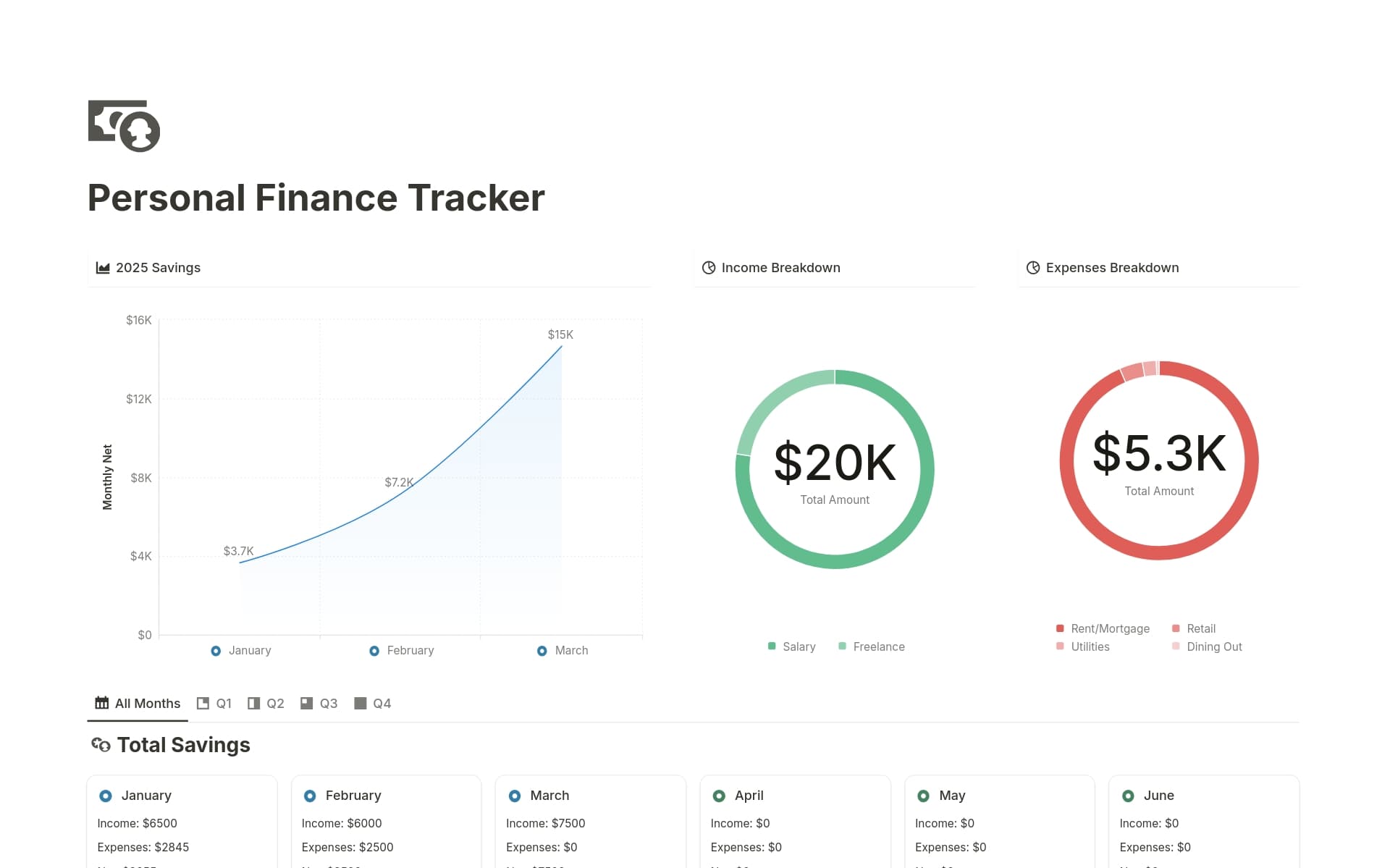Maintaining strong customer relations is essential for any business or individual providing services. It fosters trust, ensures customer satisfaction, and can lead to repeat business and referrals. A Customer Relations template in Notion can streamline the process of tracking interactions, managing contacts, and scheduling follow-ups, making it easier to nurture and grow these important relationships.
Before you dive into creating your own Customer Relations system, take a look at these Notion templates designed to simplify and enhance your customer management efforts. They can provide a solid starting point and save you time.
What Should Customer Relations Templates Include?
Choosing the right Customer Relations template in Notion can streamline your workflow and enhance your interactions with clients. Here are key components to look for:
Contact Management: This feature should allow you to easily store, search, and manage customer information, ensuring all client data is accessible and organized.
Interaction Tracking: A good template will enable you to record every interaction with a client, including calls, emails, and meetings, to keep a comprehensive history of communications.
Task and Event Scheduling: Look for templates that integrate task management with calendar functions to help you keep track of follow-ups and deadlines.
Reporting and Insights: The ability to generate reports on customer behavior and history can help you make informed decisions and tailor your approach to meet client needs.
Selecting a template with these components will ensure you maintain a productive and organized customer relations system.
What Should Customer Relations Templates Avoid?
When selecting a Customer Relations template in Notion, it's important to be aware of certain features that might hinder rather than help. Here are three key components to steer clear of:
Overly Complex Features: Avoid templates with complicated functionalities that require extensive training. Simplicity enhances usability and efficiency.
Non-Customizable Sections: A rigid template that doesn't allow modifications can limit your ability to tailor processes to your specific needs. Flexibility is key in customer relations.
Lack of Integration Options: Ensure the template can integrate seamlessly with other tools you use. A template that exists in isolation can silo information and disrupt workflow.
Choosing the right template involves more than just its appearance; it's about ensuring it serves your operational needs effectively without adding unnecessary complexity.












